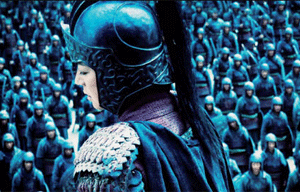US urged not to provoke trade war with China
Updated: 2011-10-22 17:18
(Xinhua)
|
|||||||||
NEW YORK - A group of US experts and business executives Friday called on policymakers in Washington not to provoke a trade war with China, which would inflict damages on both nations.
The warning was made in the wake of recent debates in US Congress over a currency bill intended to pressure China to revalue its currency, which aroused great concerns among the 200 business leaders attending a business forum here hosted by the China Institute.
They said it would be a "misguided attempt to administer hard power" against WTO guidelines of promoting free trade if the Congress passed the bill and imposed tariffs on Chinese goods. In their opinion, trade war was definitely shortsighted.
The experts underscored the importance of educating the US public about the real causes of the economic slump in their country and noted that cooperation would be more constructive as against trade war.
"I don't think that going after exchange rate policy is a productive way to solve problems between China and the United States. There are problems between the two countries, but exchange rate is the wrong issue," Yasheng Huang, professor of MIT Sloan School of Management, said.
"I think the main problem (for the US economic difficulty) is the irresponsible behavior of the Wall Street and the excessive deregulatory drive in the financial service sector," he said.
"Today, the United States has national needs, China has national needs and there have been clashes between the two countries. But China and the United States have proved for 40 years that they have common ground and that they want to work together and I am sure that they will continue to work together," said Julie Nixon Eisenhower, daughter of late US president Richard Nixon and trustee of the China Institute.
"Our common interest is growing," said Kin Moy, US deputy assistant secretary of state, as he called for a more cooperated and coordinated way to deal with problems between the two nations.










